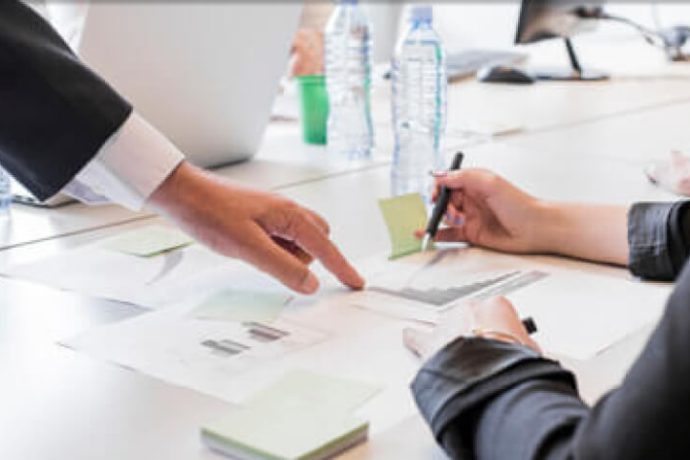The good news for people who enjoy a nightcap or the odd night out is that many of the negative effects of alcohol on sleep are relatively short-lived, and can be reversed by avoiding alcohol or reducing intake. While it may take longer for sleep and circadian rhythms to return to normal in people who drink more often in higher amounts, quitting alcohol can help. Anyone who has experienced a restless night after a few drinks can attest to alcohol’s disruptive effect on sleep. Though alcohol can increase drowsiness and reduce the time it takes to fall asleep, it can ultimately reduce sleep quality and change sleep https://northiowatoday.com/2025/01/27/sober-house-rules-what-you-should-know-before-moving-in/ patterns. Moreover, alcohol can reduce the time spent in one sleep cycle while increasing the time spent in another. Alcohol also affects circadian rhythms—the 24-hour body clock that responds to environmental light cues in order to synchronize our sleep-wake cycle.
- ‘Bottoms up’ is simply not a long-term recipe for restful sleep – instead, the bottom line is that although there may be a perceived sense that alcohol promotes faster and deeper sleep, it’s in fact just a ruse.
- First off, while wine and other alcohols have notorious sedative effects, it’s important to note that these drinks also have calories, which means they give us energy, too.
- Generally, less is known about the effect that multiple nights of drinking has on sleep – with only a small number of studies (which had low numbers of participants) showing inconsistent results.
- Finally, regular drinking has been linked to insomnia and other sleep disorders, especially later in life.
Why do my allergies get worse at night? Tips to sleep better with allergies
The movement between NREM and REM sleep involves a complex interaction betweenREM-on and REM-off neuronal groups in the brainstem. The REM-on groups largely consist ofcholinergic cells in the lateral dorsal tegmentum (LDT) and the pedunculo pontine tegemental(PPT) nuclei. REM-off cells involve the serotonergic dorsal raphe nucleus and noradrenergiclocus ceruleus. The model originally developed by McCarleyand Hobson (1975) proposed a set of reciprocal interactions between the two groupsof neurons whereby REM-on neurons are influenced by a self-excitatory loop but also have anexcitatory link to REM-off neurons. Once a threshold level of activation is reached in theREM-off cells, they become dominant.
Alcohol is often used as a sleep aid—with some people crediting a “nightcap” with helping them fall asleep more easily. The percentage of (A) slow wave sleep (SWS) and (B) rapid eye movement (REM) sleep in thefirst half of the night across multiple nights of drinking. Data are drawn from (Feige et al. 2006; Prinz et al. 1980; Rundell et al.1972). People who wake up tired every morning may be more likely to lean back in to drinking to help them sleep better. But this can create a negative pattern that leads to more serious, long-term effects of alcohol on sleep.
- Those effects of alcohol on the biological clock appear to persist even without additional drinking, according to research.
- Alcohol use and dependence appear to interfere with circadian rhythms—biological patterns that operate on a 24-hour clock.
- This practice can mask an underlying sleep disorder such as obstructive sleep apnea which may be causing the insomnia in the first place.
- There are a ton of options for changing your drinking routine, whether that means cutting down a little or abstaining completely.
- While this may work for a short time, typically, more alcohol is needed to accomplish this over time.
0 Acute effects of alcohol on sleep
“Sleep is essential for the preservation of brain energy1, facilitation of learning and memory, support of cognitive capacity, emotional regulation2, and clearance of toxic waste3,” says Dr. Willeumier. “Alcohol consumption disrupts restorative sleep and can result in impaired immune, cardiovascular, and cognitive health. Furthermore, insomnia increases your risk for mood disorders and substance abuse.” Dr. Willeumier explains that while the sedative properties of alcohol increase deep sleep during the non-rapid eye movement phase (NREM), it also reduces the time spent in the rapid eye movement (REM) phase. “REM sleep is critical to healthy brain function as it is essential in emotional regulation and the consolidation and retention of memories,” says Dr. Willeumier. During this stage, your eyes stop moving and your body temperature drops to prepare you for deeper sleep.
When should you stop drinking alcohol to minimize its impact on sleep?
For a more satisfying night of sleep, Geiga and Martin recommend a low-congener cocktail with vodka, gin, or a light rum with a splash of juice or water in lieu of a carbonated mixer. And don’t underestimate the power of a glass of water to manage hydration levels. Nighttime thirst can be a puzzling issue, and it’s important to understand the underlying causes to improve your sleep quality.
2 Sex effects in the impact of alcohol and alcoholism on sleep
- As blood alcohol levels rise and fall, alcohol exerts different effects on your sleep.
- A newer study found that one dose of alcohol had no effect on the circadian rhythm in rodents.
- OSA is recurrent episodes of airway obstruction resulting in disruptions in sleep.
- It is recommended you increase your daily water consumption and avoid drinking alcohol before bed to prevent its dehydrating effects.
- During the final hours of sleep when alcohol is metabolized by the body, it can have a disruptive effect on sleep, causing frequent waking and fragmented sleep.
Better sleep will not only leave you feeling more refreshed, it will also benefit your overall health and well-being. Better sleep will not only leave you feeling more refreshed, it will also benefit your overall health and wellbeing. If you don’t set a limit before heading to the bar, it can be easy to find yourself ordering another drink every time the bartender comes around to check on you and your empty glass. If you have a supportive friend or partner who is also attending the festivities, ask them to keep you accountable to your new limit. Guy Meadows, a sleep researcher and co-founder of The Sleep School, an online platform offering science-based support around sleep, told Live Science that alcohol affects the four stages of sleep in different ways. If you think your drinking may be impeding your sleep or overall quality of life, speaking to your doctor or therapist is a great first step.
Laboratory based polysomnographic studies of abstinent alcoholics typically show apattern of sleep disturbance with increased wakefulness consistent with self-reports ofpersistent sleep disturbance common in this population. Sleep efficiency is a simple indexof the proportion of the time in bed spent asleep and thus a polysomnographic marker ofgeneral sleep quality. Rundell et al. (1972) studied seven youngmen over three nights of drinking with alcohol administered over an hour, ending 30minutes before bed, with blood alcohol concentrations at bedtime between 0.05 and 0.095 mgpercent. Data are presented from a baseline night, three drinking nights and the mean oftwo recovery nights.
Alcohol consumption can lead to insomnia, sleep apnea, and a host of other health issues. As a best practice, those who choose to indulge should stop drinking at least four hours before bed. Staying hydrated, eating bland foods, and steeling yourself for a rough night are good ideas too. Instead of deep, restful sleep, you’re more likely to find nighttime awakenings, lower sleep quality, and reduced sleep efficiency at the bottom of your glass.
Limiting Alcohol Consumption Before Bed
The sleep EEG effects in those with long-term alcohol dependence are theopposite to those following acute alcohol administration. One possible mechanism islong-term alteration in responsiveness of GABA mechanisms. There is evidence of allostericmodification of GABA receptors (Kang, Spigelman, and Olsen1998; Follesa et al. 2006) and reducedGABAA receptor function (Valenzuela andHarris 1997; Mihic and Harris 1995) inrodent models of alcohol dependence. Thus down regulation of brainstem GABAergic systemsfollowing development of alcohol dependence would lead to diminished activity in REM-offsystems (see Figure 6) leading to an increasedpropensity for REM. This hypothesis has not been directly tested, and it should be notedthat other factors may play a role in the increased REM seen in long-term abstinentalcoholics. For sober house example, administration of the tumor necrosis factor α(TNF-α) antagonist etanercept led to normalization of REM sleep in 18 abstinentalcoholics (Irwin et al. 2009).
Factors Influencing Alcohol’s Impact
Another possibility is that alcohol abuse leads to long-lastingneurochemical changes in the brain stem. Figure 2 (adapted from (Colrain, Turlington, and Baker 2009b) gives an example of theproportions of wakefulness (pre-sleep and throughout the night), and different sleep stagesin alcoholic and control men and women. In fact, between 35% and 70% of individuals who use alcohol have insomnia.3 It may seem surprising, considering that alcohol is a depressant, yet alcohol is known to interfere with fundamental aspects of sleep quality. Alcohol initially acts as a sedative, increasing the proportion of deep sleep at the beginning of the night. However, as the alcohol’s effects start to wear off, the body spends more time in light sleep, which is not as sound and may lead to more nighttime awakenings. As a result of these frequent awakenings, people tend to clock fewer hours sleeping after drinking alcohol.
In general, maintaining a well-balanced diet, with an emphasis on lean proteins and diverse plant foods, can go a long way to enhancing your sleep, night-to-night. Alcohol has been shown to negatively impact sleep, but this comes down to the individual. The link between alcohol consumption and sleep impairment is especially prominent among older adults.
It is recommended you increase your daily water consumption and avoid drinking alcohol before bed to prevent its dehydrating effects. In the short term, these alterations to our sleep pattern can lead to a restless second half of the night. In the long term, frequent disruptions to our natural sleep cycle may alter the homeostatic drive in a more permanent way. People who abuse alcohol long-term don’t seem to display the deep recovery sleep that most people show after sleep deprivation, suggesting that the homeostatic drive is no longer functioning as it should. After a few drinks, these increased adenosine levels send us into a deep sleep.
“Initially, alcohol reduces the amount of time it takes to enter stage 3 — Non-REM, slow-wave sleep, the deepest sleep stage where we are mostly unconscious,” says Rohrscheib. Being a sedative and depressant of the central nervous system, alcohol can increase feelings of tiredness and sluggishness. One of the side effects of alcohol is drowsiness, so it can make you fall asleep quickly. Just because alcohol has a sedative effect doesn’t mean you’ll get better sleep, though. Research has shown that drinking messes with sleep cycles and leads to frequent awakenings in the night and early morning.

